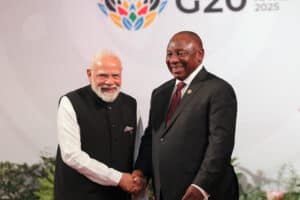The United Nations said Monday that India already boasts 1.43 billion people.

Every morning and evening — and for several hours in between — tens of millions of Indians sit idle on gridlocked highways and hang from the sides of packed passenger trains in what is becoming the world’s most populous nation.
For those living cheek-by-jowl in the country’s sprawling megacities, the thought of cohabiting with even more people is no cause for cheer.
India population
The United Nations said Monday that India — already boasting 1.43 billion people — would this week overtake China to earn the distinction of being home to more humans than any other country on the planet.
India is projected to see an explosion in its urban population in the coming decades, with over 270 million more people forecast to live in its cities by 2040.
ALSO READ: Family planning in India: A woman’s dangerous burden
But congestion and overcrowding are already perennial sources of frustration for their inhabitants.
“The roads are choked with vehicles, so you spend hours in traffic jams,” Satish Manchanda, a mobile phone shop owner in the capital New Delhi, told AFP before embarking on his evening commute.
Manchanda and millions of others spend hours each day travelling to and from homes on the outskirts of cities already struggling with water shortages, pollution and packed slums.
About 70 percent of the billions of litres of sewage produced in urban centres every day goes untreated, a government report said in 2021.
New Delhi, home to 20 million people, is cloaked in toxic air pollution every winter that caused almost 17,500 premature deaths in 2019, according to a study in the Lancet medical journal.
ALSO READ: India’s top court to weigh same-sex marriage recognition
Indian cities also face huge challenges in providing electricity, housing, services and jobs for their growing populations.
‘Competition’
Banker Sonam Vardan bemoaned the “cut-throat competition” in her career and the seemingly endless fights that accompany her daily life in New Delhi.
“Population is growing, so is competition, which means lots of struggle,” she told AFP, cataloguing her constant battles against rival job applicants, other parents and motorists who were all vying for their share of the same limited resources.
“There’s also a struggle for admission of children in schools,” she added. “There are limited seats, but so many children.”






